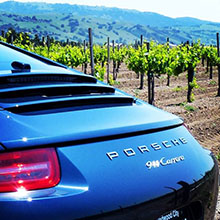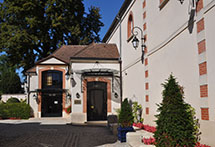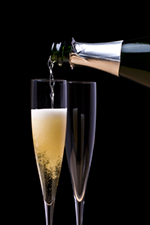|
| |
| Recent Labels |
| |
| Non-Vintage |
| |
| Nicholas Francois Billecart |
|
|
|
|
| |
| |
| |
Billecart-Salmon Nicolas Francois Billecart 1999 Brut Champagne |
Billecart-Salmon Nicolas Francois Billecart 1999 champagne is one of Billecart-Salmon's prestige cuvees. Nicolas Francois Billecart 1999 is not available in all markets so you may have to order it on-line.
| Billecart-Salmon Nicolas Francois Billecart 1999 |
| Characteristics |
|
|
|
|
| Type Category: |
Basic |
Prestige Cuvée: |
Yes |
|
| |
| Ratings (on a scale of 100) |
|
|
|
|
| Champagne 411 |
na |
na |
|
Retail Price |
| Wine Enthusiast |
na |
na |
|
(750 ml bottle) $105 |
| Wine Spectator |
na |
na |
|
|
|
|
|
|
|
|
Tasting Notes
Appearance: na
Aroma/bouquet: na
Palate: na
Additional comments: Champagne 411 has not reviewed this prestige cuvee champagne.
When to drink: na
| Nicolas Francois Billecart 1999 Details
Label: Billecart-Salmon Cuvée Nicolas Francois Billecart Brut 1999 Champagne
House/Winery: Champagne Billecart-Salmon
Wine Category: Sparkling Wine
Region & Country: Champagne, France
Type (Style): Vintage
Sweetness Level: Brut
Dosage: na
Prestige cuvée: Yes
Vineyards: 100% Grand Cru
Grapes: na
Alcohol: na
Go to Champagne Details for a description of the above types, characteristics, and grapes. |
Billecart-Salmon Nicolas Francois Billecart 1999
Production
Billecart-Salmon uses the méthode champenoise for their champagne production. Nicolas Francois Billecart 1999 is composed of a blend of Chardonnay and Pinot Noir with a portion aged in neutral oak barrels. Billecart-Salmon typically gives many of their vintage brut champagnes a dosage of 5 grams per liter or less and often ages its prestige cuvees from 8 to 10 years on lees prior to disgorgement.
The House uses a technique called double debourbage. Solids in fresh juice settle to clarify the juice, then a second 'cold' settling occurs at about 40 degrees Fahrenheit for at least 48 hours. This process ensures the purest of juice will be used for fermentation. The fermentation process typically takes place over 3 to 4 weeks at a temperature not to exceed approximately 57 degrees Fahrenheit (typical fermentation at most houses is 1 week at about 68 degrees Fahrenheit). |




